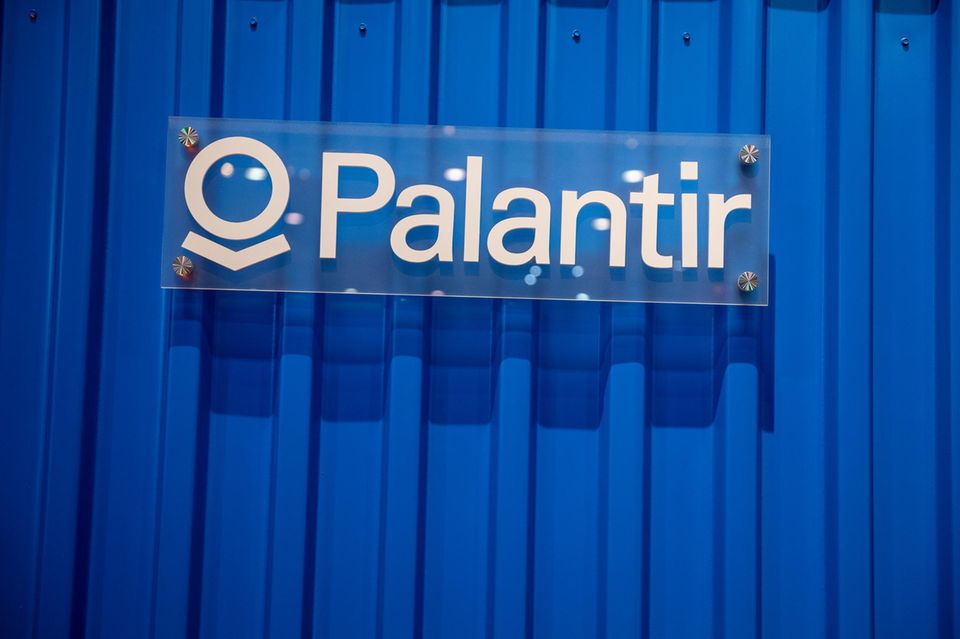Stocks: Defense stocks are booming – just not in the USA

by Sylvia Pfeifer, Clara Murray and Steff Chávez
4 minutesActually, shares in defense companies are currently in high demand – just not in the USA. There, the large defense companies such as Lockheed Martin and General Dynamics are suffering from the austerity measures of the Trump administration
The leading US defense companies are missing out on the industry's global boom after Donald Trump called on Europe to spend more on its own security while simultaneously planning to cut the Pentagon's budget.
The shares of the six largest US defense companies have fallen by an average of four percent since Trump returned to the White House. Meanwhile, the prices of the leading European defense companies, especially Rheinmetall, have risen by almost 40 percent in the same period.

>> The Week – Newsletter <<
The most important topic of the week from business, finance and politics - pointedly classified by Capital editor-in-chief Timo Pache. Every Friday, free of charge and with many reading tips on the best Capital stories of the week.
South Korean defense companies, which benefit from Europe's military buildup, have also emerged as winners. Shares in Hanwha Aerospace, the country's largest company, which benefits from demand from NATO countries such as Poland and Romania, have risen by more than 70 percent.
The contrasting stock movements underscore how Trump's threat to roll back U.S. military support for European security has changed investors' view of the industry, along with tech billionaire Elon Musk's government-wide austerity measures and last week's Pentagon leadership purge.
"Clear-cutting of government personnel"The industry is facing unprecedented upheaval, says Byron Callan, managing partner at research group Capital Alpha Partners. The US sector faces uncertainty on several fronts, particularly "regarding current and future programs, the prospect of a government personnel cutback and how other countries might respond to changes in US international policy," he says.
Before the presidential election last year, the performance of the US defense sector lagged behind that of Europe and Asia. But Trump's victory and his first month in office have widened the gap. The share prices of some US companies with large civil aerospace divisions, primarily Boeing and RTX, have increased.
Shares in Germany's largest arms company Rheinmetall and the Italian group Leonardo gained more than ten percent last week. The reason for this is Trump's decision to start peace talks with Russia over the war in Ukraine. This increased expectations that Europe would have to bear a greater share of the burden of its own security in the future.
German stock prices continued to rise on Monday as hopes grew for higher spending by the new government led by Friedrich Merz, despite some concerns that his plans could be hampered by parties opposed to Ukraine's military buildup.

The US defense companies, on the other hand, are among the companies that are highly dependent on federal spending. They must now prepare for cuts in the Pentagon's annual budget of $850 billion. In the 2026 fiscal year, the Defense Department plans to cut eight percent of spending, or $50 billion. Savings of a similar magnitude are expected in subsequent years.
US Secretary of Defense Pete Hegseth met with representatives of the so-called Department of Government Efficiency at the Pentagon last week and stressed that the focus of the cuts would be on "headquarters and superfluous and top positions." According to Barclays analysts, the sector is the largest recipient of federal contracts, with Lockheed Martin, General Dynamics, RTX and Northrop Grumman among the top 10 beneficiaries of US government spending. The bulk of the cuts are expected to affect civilian salaries, maintenance services, training and education, but analysts say it is unlikely that the industry's major contractors will be completely spared.
Palantir benefits from the new lineThe largest portion of the U.S. defense budget for major government contractors, or "primes," is for procurement, research and development, and testing and evaluation. This area "accounts for about 35 percent of the total Defense Department budget and may not be entirely immune to cuts," Morgan Stanley analysts said. While the geopolitical environment and the likelihood of Congress supporting national security spending remain favorable for the sector, the path to government reform taken by the new administration creates a wide range of uncertainties, they added.

The prospect of technology-oriented companies like Palantir and Anduril securing large parts of the Pentagon budget is also unsettling investors who have put their money into traditional defense companies. Palantir shares have risen by 40 percent this year . Peter Thiel, a close confidant of Elon Musk and Vice President JD Vance, heads Palantir's board of directors. Investors are betting that the close ties to the Trump administration would boost business with the US military and spy organizations.
Several defense industry executives have sought to downplay the impact of any cost cuts, stressing that the country needs strong investments in defense. Christopher Calio, CEO of Raytheon parent company RTX, acknowledged at a recent investor conference that there is "a lot of noise out there." But he also said there is "bipartisan support for a strong defense and a strong defense industrial base." There is also "fundamental agreement on ... the peace through strength narrative and the need to demonstrate power globally."
In the short term, executives and analysts say the change in administration could lead to contract award delays. DOGE may also try to renegotiate the terms of existing contracts rather than targeting the actual programs. "In the first quarter, as is often the case with a change of administration in the US, there will be some contract award delays," Northrop Grumman CEO Kathy Warden said earlier this month. The company expects growth to "gradually accelerate over the course of the year."
© The Financial Times Ltd. 2025
capital.de






